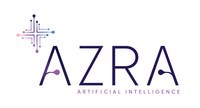Clinical Intelligence Platform includes liver, kidney and adrenal, thyroid, pancreas, and ovarian cancers and aneurysms
FRANKLIN, Tenn., July 6, 2022 /PRNewswire/ -- Azra AI's proprietary software — which uses artificial intelligence (AI) and natural language processing to identify incidental lung nodules in medical reports — is expanding to include liver, kidney and adrenal, pancreatic, and ovarian cancers and aneurysms.
Now in use in more than 200 medical systems and hospitals across the country, Azra AI's technology helps clinicians and medical teams identify suspicious findings that could lead to an earlier cancer diagnosis for patients, where treatment options allow patients to potentially be cured. These findings are detected in patients that receive imaging primarily for other healthcare illnesses or conditions, which explains the term "incidental." Azra AI's technology identifies cancers that often have no symptoms until the cancer is late stage.
In a ground-breaking study led by researchers at the University of Utah School of Medicine — 1,000 computed tomography (CT) scans ordered by emergency room clinicians found that follow-up for incidental lung nodules was 29%, a poor overall rate. Researchers said that these rates remain low, even when there are specific instructions for patients to follow up. Up to 80% of lung nodules are found incidentally, and nearly a quarter of those nodules are malignant.
Chris Cashwell, CEO of Azra AI, said the expanded platform will positively impact patients.
"With this larger scope of incidental findings, our technology will help physicians, navigators, and care teams identify potential cancers sooner at a critical juncture," he said. "Health equity is an important priority for health systems and targeting incidental findings is an excellent way to impact the quality and consistency of care for patients. We are proud to partner with some of the leading healthcare systems across the country that use the technology, including HCA Healthcare and University of Pennsylvania Health System. "
Detecting ovarian and other cancers as soon as possible is critical, making Azra AI's technology all the more important for medical systems, hospitals, and their patients.
Women with ovarian cancer typically present with symptoms easily mistaken for other, more common conditions, including constipation or a urinary tract infection. Five-year survival rates for certain ovarian cancers are relatively low, underscoring the importance of early detection. What's more, there is a dramatic decrease in survival from 93% in early-stage detection to less than 30% when the cancer has metastasized.
The number of people affected by these cancers is substantial. Lung cancer is the third most common type of cancer in the US, with estimates of 236,740 new cases and 130,180 deaths in 2022. The National Cancer Institute estimates 62,210 new cases and 49,830 deaths for pancreatic cancer. Some 79,000 new cases of kidney cancer are expected in 2022, with an estimated 13,920 deaths.
Brook Blackmore, Vice President of Clinical Operations at Azra AI, previously served as senior director of navigation operations at Sarah Cannon, the cancer institute of HCA Healthcare. She helped create the current technology, working with a core team at Azra AI, and has witnessed its impact firsthand.
"We are excited to offer in-depth AI and natural language processing technologies to help even more patients," Blackmore said. "Having worked as a clinician and leader in cancer care, I recognize the importance of this expanded platform. Clinicians and navigators in health systems using the Azra AI platform can now spend more time with patients, ensuring timely follow-up and patient retention for treatment."
According to a 2018 Journal of Clinical Oncology study, Azra AI technology used in three HCA hospital markets resulted in an increase by 35% in time allocated to direct patient contact and physician interaction.
Azra AI uses proprietary artificial intelligence software to read millions of unstructured data records and identify at-risk patients in need of follow-up care, resulting in more equitable health outcomes, increased patient retention, and a reduced burden on clinical workers. This revolutionary technology — used in hospitals and cancer centers across the country — accelerates the patient care process and delivers a positive impact on clinical, financial, and operational outcomes. Learn more about Azra AI https://www.azra-ai.com/ and follow us at @Azra_AI_Health.
Contact: KNB Communications
Email: azraai@knbcomm.com
Phone: (203) 504-8230
SOURCE Azra AI
WANT YOUR COMPANY'S NEWS FEATURED ON PRNEWSWIRE.COM?
Newsrooms &
Influencers
Digital Media
Outlets
Journalists
Opted In

Share this article